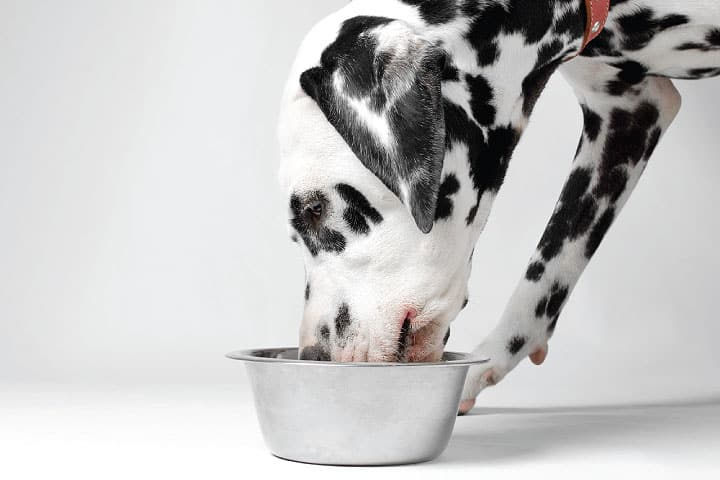
The use of dietary supplements and other forms of self-selected complementary and alternative medicine (CAM) is increasingly common in human cancer patients. The same appears to be true in veterinary health.
Use of these therapies gives owners a sense of control and enables them to feel that they are making a positive difference to their pet’s wellbeing.
The fact that owners have undertaken some form of selection process in choosing their dietary or complementary therapy means that there is some degree of emotional investment in the selected supplement. Failure to understand and to empathise with the decision to use nutritional supplements or CAM risks damaging the trust between owner and veterinary surgeon which can further polarise owners away from scientific or evidence-based approaches.
There is also a risk that if nutrition and CAM treatments are not discussed openly, treatment selection can have a detrimental effect for the patient.
Although there are actually tens of thousands of published studies examining diet and CAM therapies for cancer, frequently studies are subject to certain limitations. Investigators may have a vested interest in the success of a given product. Investigations can be conducted with insufficient control, numbers or follow up for meaningful conclusions to be drawn.
There is often, nowadays, a conflation of evidence-based and non-evidence-based methods, creating a sense of comfort for those scientifically-minded readers but requiring greater concentration to understand the flaws in the methodology. While there are some exceptionally well-planned and well-executed studies, these usually fail to provide evidence in support of the treatment in question.
This short article will summarise the evidence that we have regarding dietary and other complementary cancer therapies.
Low Carbohydrate/Ketogenic Diet
Background
It has been shown beyond doubt that cancer derives a disproportionate amount of its energy from the cytosolic metabolism of glucose to lactate, not from the more efficient mitochondrial oxidative phosphorylation pathway. This observation was first made in the 1920s but still, there is no consensus regarding the explanation for this physiological change. Countless different strategies have been developed to take advantage of this effect. They are variously labelled: low carbohydrate, high-fat/high-protein, ketogenic, grain-free.
In humans with advanced cancers, blood glucose levels are correlated to outcome; those with a lower blood glucose survive longer. There does appear to be a rationale for reducing the intake of simple sugars, especially. There is some very limited evidence to say that this approach may be useful for dogs with lymphoma.
Risks
There is a risk with any home-prepared diet that vital elements will be deficient or even missing. The digestibility of these diets can be relatively poor which is of significance in a largely geriatric population. Some commercially available high-fat diets can induce steatorrhoea which is associated with abdominal discomfort and rarely with significant faecal blood loss. There is a stated risk that these diets induce acidification which in turn is reported to promote the development of further cancers; we feel that the strength of this argument is weaker than the argument for use of the diet. Perhaps of greatest importance, patients can suffer low energy levels. This might be acceptable for human patients who make their own lifestyle choices but, in the context of the veterinary cancer goal of optimising quality of life, is arguably an unacceptable outcome.
High Fibre/Vegetable Content Diet
Background
There are many studies in human and a few in veterinary health showing that diets high in coloured vegetables have a preventive effect against the development of cancer. In human patients, reducing the dietary contributions from red and processed meat is also advantageous. However, these changes have not been shown to be associated with an improved outcome following cancer diagnosis.
Risks
The practice of adding fruit and vegetables to a dog’s diet appears to be a very low risk activity and, in our view, is likely to add both to the interest and the nutritional value of their diet rather than to detract from it. Of course, dogs cannot tolerate onions and garlic so these must be avoided. Cats, however, are obligate carnivores. They digest and assimilate animal protein. Vegetable proteins are deficient in certain essential (for cats) amino acids and in vitamins A and B12. Cats are also unable to satisfactorily digest the higher carbohydrate content associated with plant-based foods.
Curcumin
Background
Curcumin is found in the spice, turmeric. There are observational and clinical studies that indicate some activity as a chemopreventive (medical agent that reduces the incidence of cancer) and anti-proliferative (medical agent that reduces the progression of cancer) agent.
Administration There are no clear data concerning dose. An average human dose of 5g of turmeric daily is reported in India. This equates to approximately 200mg of curcumin. Absorption is variable but is enhanced when consumed with fatty or oily foods, for example, fish oil.
Interactions
There is some evidence that curcumin potentiates the anti-coagulant effect of other drugs including aspirin and other NSAIDs. Curcumin may inhibit the effectiveness of cyclophosphamide.
Glutamine
Background
Glutamine is an essential amino acid with a particular role in maintenance of gastrointestinal mucosal health. Oral glutamine has been shown to reduce the risk of gastrointestinal complications in people receiving medical therapy for cancer.
Administration
There are no clear data concerning dose. Glutamine should be given orally.
Interactions
Glutamine may interact with anti-seizure medications.
Maitake Mushrooms
Background
Mushrooms are believed to exert an anti-cancer effect by inducing non-specific immune stimulation. The proteoglycan molecules of the mushroom resemble bacterial cell wall and their association with macrophages leads to release of cytokines and an anti-tumour immune response. Epidemiological data indicate a reduced cancer mortality among human patients consuming medicinal mushrooms. When human cancer patients received Maitake mushroom D-fraction (a refined component), chemotherapy response rates were seen to more-than-double. It is unclear whether a better response would be achieved from consumption of crude ground up mushroom or from consumption of single refined components.
Administration
There are no clear data concerning dose. The mushroom, whether as crude mushroom or refined constituent, is taken orally.
Interactions
There are no known interactions though Maitake mushroom has been reported to induce a degree of hypoglycaemia.
Fish Oil
Background
Fish oil is known to be high in omega 3 fatty acids. Fish oil consumption is perceived to bias fatty acid metabolism towards anti-inflammatory rather than pro-inflammatory pathways. There are no data indicating improved cancer survival for patients receiving fish oil supplementation. Increased neutrophil numbers have been described in patients receiving chemotherapy.
Administration
There are no clear data concerning dose for an anti-cancer effect. Administration of doses that are disproportionately greater than might be taken for maintenance of human health may induce steatorrhoea and other gastrointestinal complications.
Interactions
There is a perceived risk of increased bleeding time. We advise against administering to patients with thrombocytopenia (9/L). Fish oil does synergise with anti-hypertensive medications, eg ACE inhibitors, in people.
Cannabis/Hemp Oil
Background
Cannabis extract, which may be known to you as CBD oil, has attracted a significant amount of interest as a CAM in the management of cancer patients. There are anecdotal reports of cancer treatment successes in humans and pets. There are stated cancer benefits including increased appetite and reduced nausea among patients. Chemosensitisation and increased apoptosis of cancer cells are reported in vitro.
It is possible for individuals to purchase CBD oil and to choose to give it to their pet. From a legal perspective, CBD oil is classified as marijuana. We would strenuously recommend against making recommendations or being seen to make recommendations concerning the possible use of a class B narcotic in patients under your care.
Current government guidelines for the use of CBD oil in humans state that CBD is classified as a medicine and therefore cannot be sold without a marketing authorisation. It is also accepted by the government that patients will access these products without a marketing authorisation and they urge such patients to discuss the use of the treatment with their doctor. Similarly, we should be ready to discuss treatment with owners, whilst taking care to ensure that we are not seen to be making explicit recommendations
Administration
If CBD oil is used, a starting dose of 0.2-0.5mg/kg per os BID is suggested in dogs, the same dose would be given once daily in cats. If the product being used also contains the psychoactive element of marijuana (THCd9), this dose will be too high. Doses can be incrementally increased at one-week intervals. Side effects of CBD oil include sedation and diarrhoea.
Interactions
CBD oil impedes activity in the cytochrome P450 system which will therefore lead to alterations in the pharmacokinetics of any medications which depend upon this metabolic pathway for their detoxification. Perhaps the most commonly used example is the NSAID drug family.
Top Tip
One resource which is a great source of information is the Memorial Sloan Kettering Cancer Center (MSKCC) website. This is a renowned cancer treatment centre in New York.
A web search of MSKCC and the name of the supplement that an owner asks about will give you information on evidence for use of the therapy, potential drug interactions and any safety concerns which are reported in human oncology.
In the absence of veterinary data, this resource may prove useful.
Visit MSKCC resource website
Case Advice or Arranging a Referral
If you are a veterinary professional and would like to discuss a case with one of our team, or require pre-referral advice about a patient, please call 01883 741449. Alternatively, to refer a case, please use the online referral form
About The Discipline
Oncology

Need case advice or have any questions?
If you have any questions or would like advice on a case please call our dedicated vet line on 01883 741449 and ask to speak to one of our Oncology team.
Advice is freely available, even if the case cannot be referred.
Oncology Team
Our Oncology Team offer a caring, multi-disciplinary approach to all medical and surgical conditions.